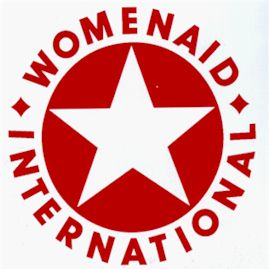
Aged 25, Pida contested, as the Conservative candidate, the most marginal seat (Greenwich, East & West Woolwich) in the 1970 Greater London Council (GLC) elections. The GLC was the government for London before the current Assembly and Mayor and was the top-tier local government administrative body for Greater London from 1965 to 1986. The GLC replaced the earlier London County Council which had covered a much smaller area.
For history of the GLC visit
https://www.bbc.co.uk/news/uk-england-london-35716693
Political Appointments
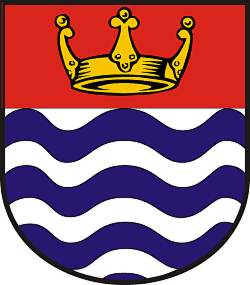
Following the Labour victory Pida was appointed an additional member of the GLC Arts Committee where the policy was to maintain and enhance the cultural traditions of the capital, primarily by maintaining and managing the South Bank Concert Halls as a centre of international standard and by grants to major companies and to extend, by means of grants to cultural bodies, the availability and accessibility of the arts across the Greater London region.
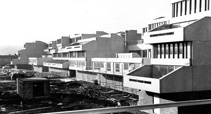
Thamesmead Houses
Appointed to the GLC Housing Board, she also served as vice-chair of the GLC South East London Council Housing Committee, responsible for council estates in South-East London. It was a period when housing policy was undergoing political flux and issues of increasing vandalism being experienced on the new estates.
An Inner London Education Authority (ILEA) appointed Governor of the world renowned Saint Martin’s School of Art, from 1970 to 1988. Council members annually elected her vice-chairman, serving three years and then Chairman of the Council – serving in that important role for well over a decade.
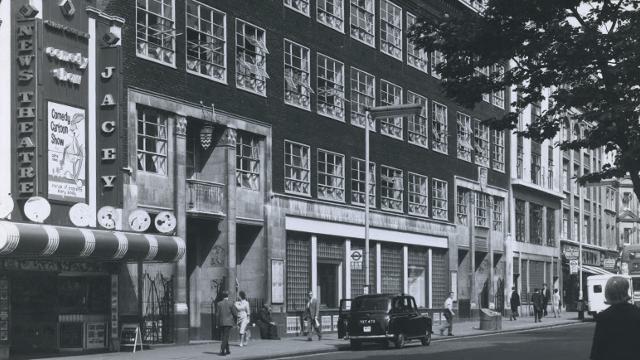
St Martin's School of Art, 109 Charing Cross Road
A hub of creativity, the college launched the careers of some of the most exciting artists of our time. 107 – 109 Charing Cross was the venue for the first Sex Pistols gig, and became the first choice and natural home for many avant-garde creatives– a place where anyone could be themselves.
When the College merged, as Central St Martins, with other colleges to form the University of the Arts London Pida decided to end her long service as a governor of one of the most prestigious art colleges in the world.
View: https://www.youtube.com/watch?v=fKqAgRU_mJw
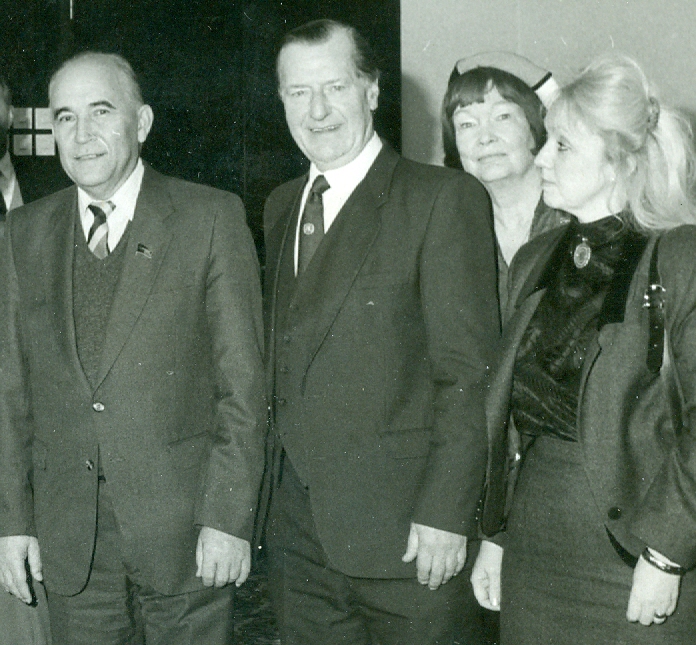
attending a meeting in the Kremlin, Moscow
Her Senior MacArthur Fellowship saw her concentrating on defence studies and in 1987 and 1988 she was invited to join UNA delegations to the Soviet Union and China. Having a brief on a range of defence and international security issues, discussions in the Kremlin, Moscow, ranged from questioning the extended deployment of the Krasnoyarsk radar - then contravening the protocols of the anti-ballistic missile (ABM)Treaty - and the reconfiguration of Soviet force postures in Afghanistan.
In Beijing she questioned officials about the likely negative long-term effect of China’s one-child policy as well as strategic triangle issues including the expansion of China’s ‘brown water fleet’ and naval capability.
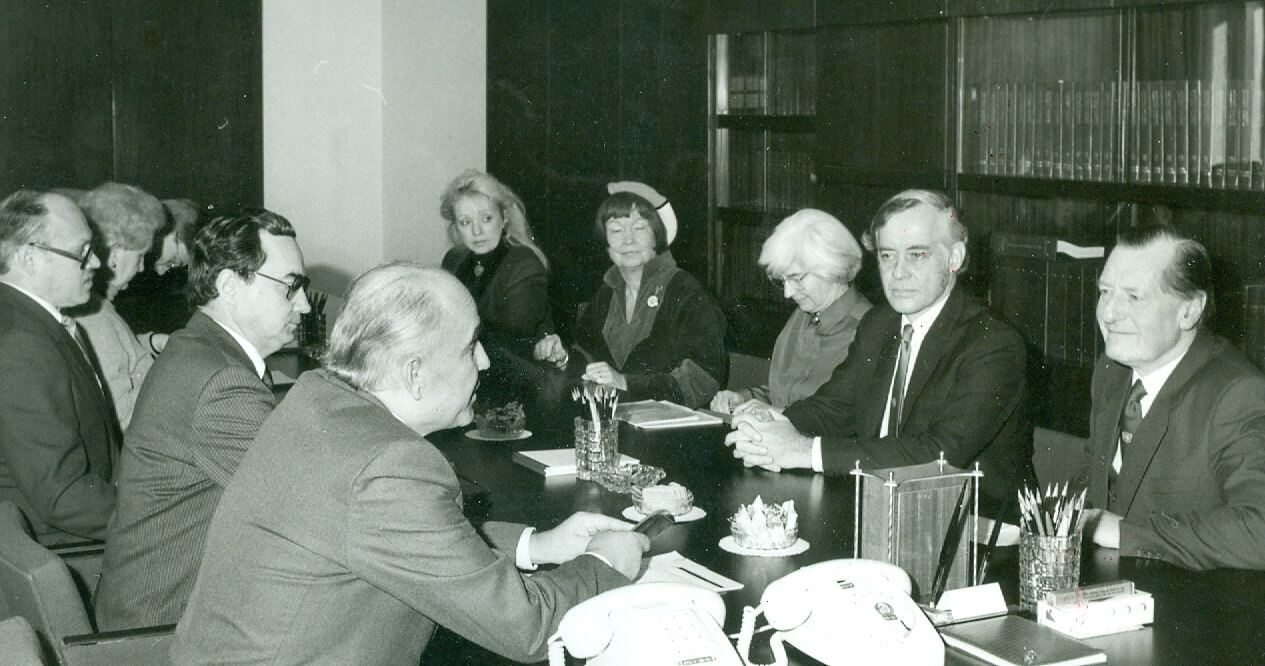
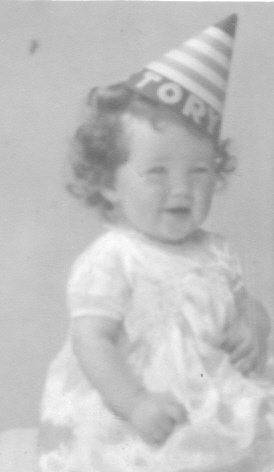
A lifelong ‘Tory’, Pida was fortunate to be mentored by Dame Irene Ward, MP and Lord Chelmer, and was placed on the Conservative Approved Lists of Parliamentary Candidates for both UK and Europe.
In 1992/3, shortlisted for a European parliamentary seat, she upset Party headquarters by withdrawing her application as she chose to postpone her personal political ambition in order to provide emergency food aid and urgent assistance to ‘rape camp’ survivors and rapidly increasing number of desperate refugees and internally displaced people devastated by the war in the former Yugoslavia.
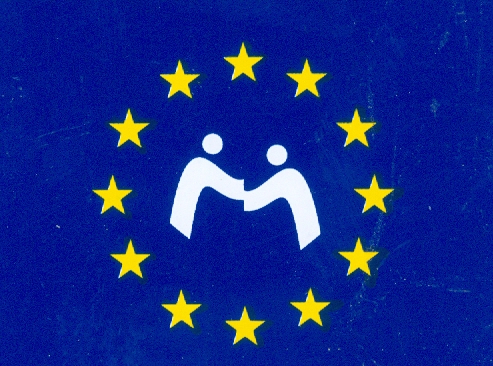
She thereafter successfully led WomenAid International, a humanitarian aid and development agency she founded in 1987, into the war-torn former Yugoslavia and other conflict areas in the Caucasus - where she felt her personal contribution, implementing major emergency aid programmes in partnership with the USAF, UN agencies and European Commission Humanitarian Office (ECHO) could truly ‘make an immediate difference’ to people’s lives'.
During this period she enabled WomenAid International to deliver over 30,000 MT of food, medicines, medical supplies and equipment, valued over £12 million to more than 1.5 million people in countries ravaged by war and political instability.
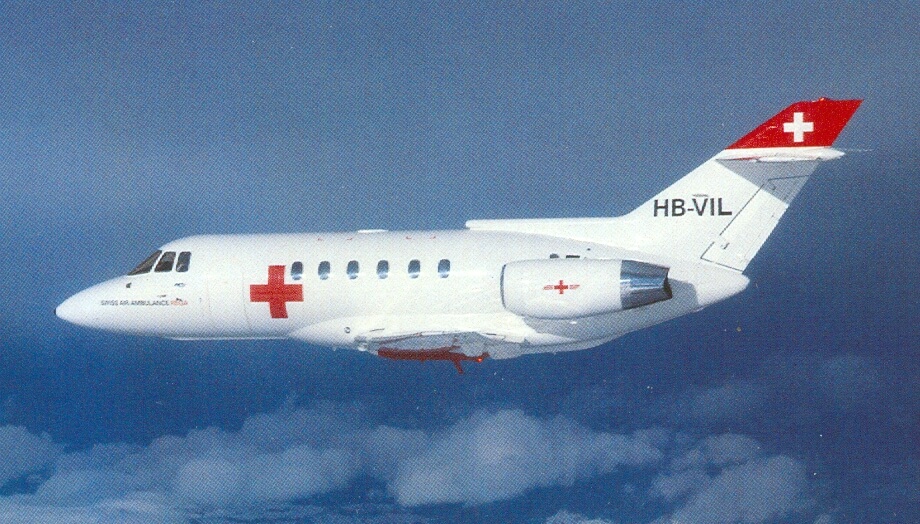
Unfortunately the ‘postponement’ of her political career became permanent in 1994 after she suffered life-changing multiple severe injuries when her jeep crashed when escaping a kidnap attempt in a conflict zone in the Caucasus. Airlifted by air ambulance to a London hospital eight days later on Christmas day, she required major surgery to recover limited use of her left arm and with other injuries and both feet smashed she was bedbound.
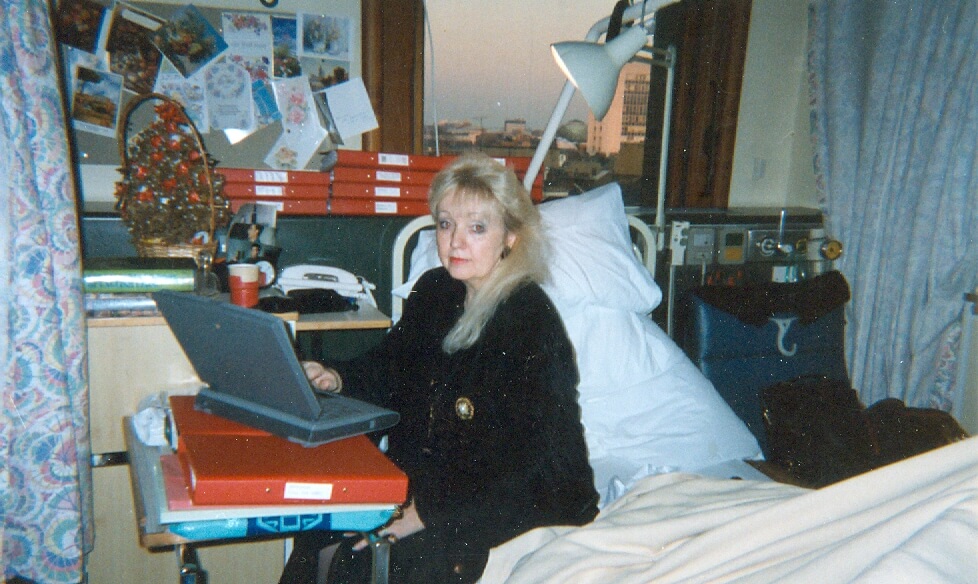
Pida continued working on the WomenAid
high value programmes from her hospital bed
During the following three months in hospital she continued, with the support of the hospital, to manage her voluntary work for WomenAid, overseeing the progress of major value programmes in several countries from her bedside.
When she was informed she was being discharged wheelchair bound as she would certainly never be able to walk again she refused to accept such an outcome and demanded further assistance to force her up onto her severely damaged feet. Six weeks later she left hospital, still in a wheelchair, but able to stand on her feet albeit with permanent intense pain and limited walking ability.
Sadly her hope of a future parliamentary career was now an impossibility.

